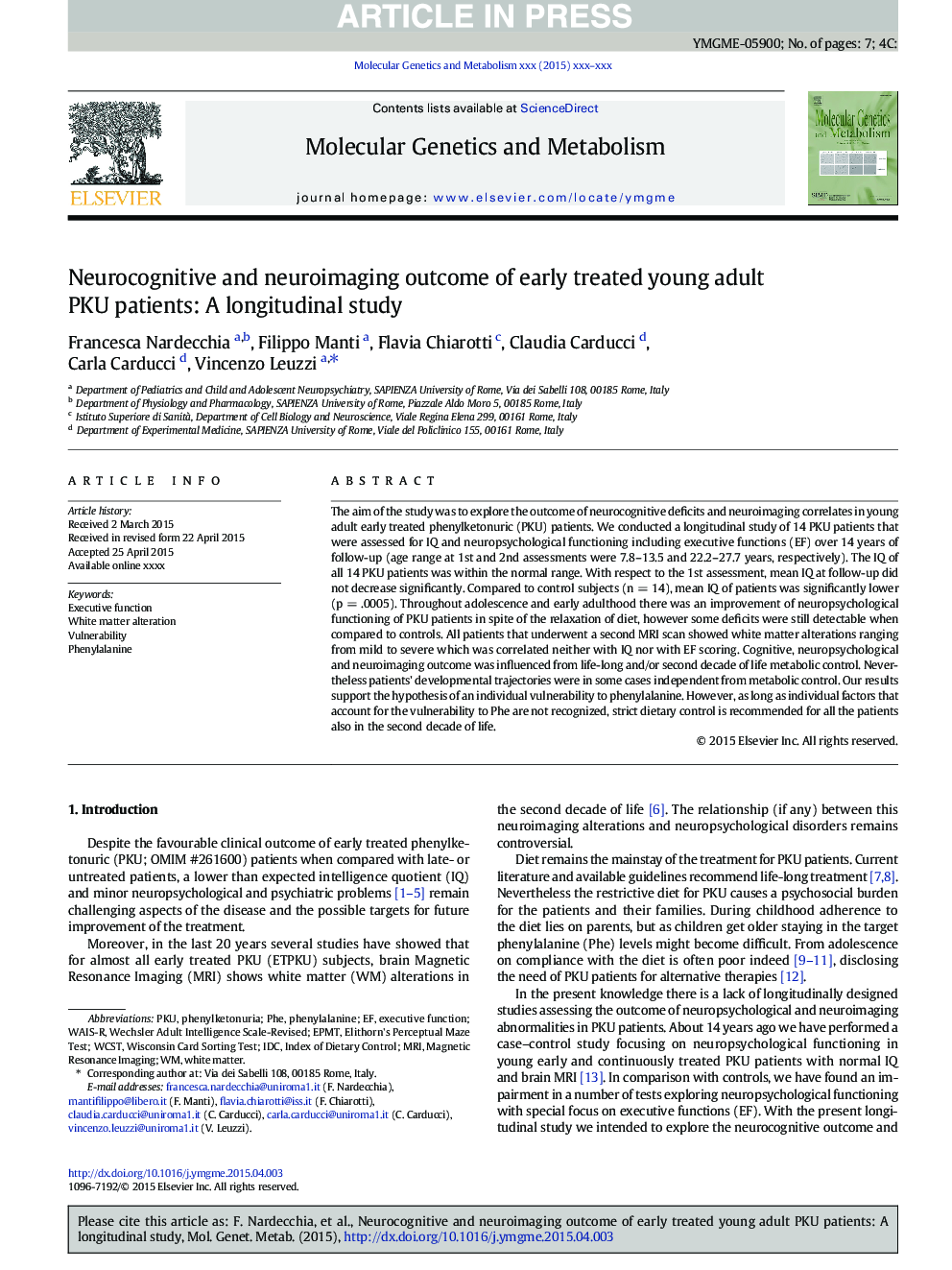| Article ID | Journal | Published Year | Pages | File Type |
|---|---|---|---|---|
| 8343772 | Molecular Genetics and Metabolism | 2015 | 7 Pages |
Abstract
The aim of the study was to explore the outcome of neurocognitive deficits and neuroimaging correlates in young adult early treated phenylketonuric (PKU) patients. We conducted a longitudinal study of 14 PKU patients that were assessed for IQ and neuropsychological functioning including executive functions (EF) over 14 years of follow-up (age range at 1st and 2nd assessments were 7.8-13.5 and 22.2-27.7 years, respectively). The IQ of all 14 PKU patients was within the normal range. With respect to the 1st assessment, mean IQ at follow-up did not decrease significantly. Compared to control subjects (n = 14), mean IQ of patients was significantly lower (p = .0005). Throughout adolescence and early adulthood there was an improvement of neuropsychological functioning of PKU patients in spite of the relaxation of diet, however some deficits were still detectable when compared to controls. All patients that underwent a second MRI scan showed white matter alterations ranging from mild to severe which was correlated neither with IQ nor with EF scoring. Cognitive, neuropsychological and neuroimaging outcome was influenced from life-long and/or second decade of life metabolic control. Nevertheless patients' developmental trajectories were in some cases independent from metabolic control. Our results support the hypothesis of an individual vulnerability to phenylalanine. However, as long as individual factors that account for the vulnerability to Phe are not recognized, strict dietary control is recommended for all the patients also in the second decade of life.
Keywords
Related Topics
Life Sciences
Biochemistry, Genetics and Molecular Biology
Biochemistry
Authors
Francesca Nardecchia, Filippo Manti, Flavia Chiarotti, Claudia Carducci, Carla Carducci, Vincenzo Leuzzi,
